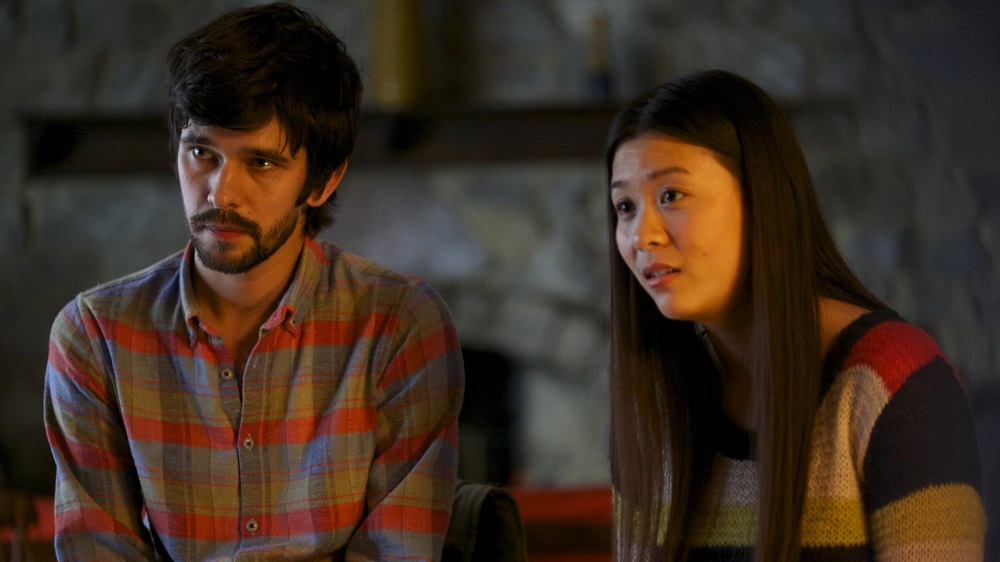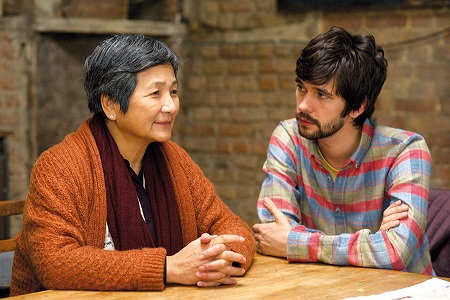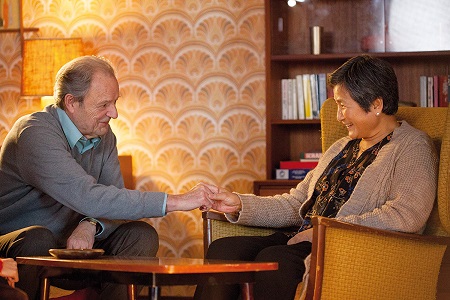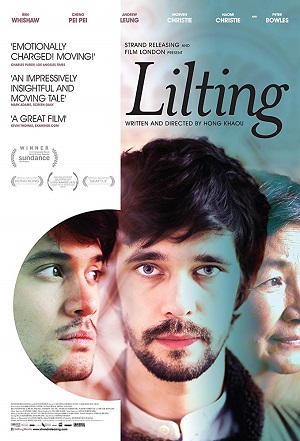
Intriguing Lilting an Unrealized Character Study
Cambodian-Chinese immigrant Junn (Cheng Pei Pei) is in London to be with her beloved son Kai (Andrew Leung). When he dies with crippling suddenness, the still vibrant woman, having never learned English or attempted to assimilate in any way, literally finds herself a stranger in a strange land, one she has been living in for some time but never truly thought of as home. Making things stranger is the appearance of Richard (Ben Whishaw), a young Londoner who for some reason seems intent on worming his way into her life for reasons she can’t begin to comprehend.
To facilitate communication, interpreter Vann (Naomi Christie) valiantly tries to help Junn understand why Richard is so adamant about getting to know her. She also, somewhat inadvertently, aids a burgeoning romance between the grieving mother and her assisted living facility’s resident lothario Alan (Peter Bowles). But Vann’s attempts at spelling out what is going on and why more often than not end up resulting in more, not less, confusion. In the end it is what remains unspoken that ultimately allows Junn and Richard to bond, each person realizing just how important Kai was to the both of them.
Lilting. Oh, Lilting. How I wish I liked you more than I actually do. Featuring a nicely modulated script constructed with delicately refined grace, writer/director Hong Khaou certainly does nothing to embarrass himself with his feature-length debut. His characters ooze authenticity, the relationship between Junn and Richard touching and affective, and it rarely reaches for melodramatic treacle in order to sell any of its core ideas. In every way that matters it’s a very good movie, sometimes more than that, and as such it’s a difficult one for me to fault even when aspects don’t quite come together as nicely as I hoped they would.
And yet, Lilting didn’t do much for me. For whatever reason the balance between the comedic and dramatic aspects left me unmoved, and as great as both Pei Pei and Whishaw are – and they are terrific – the balance between their evolving relationship and how they interact with others in the wake of Kai’s death still left me cold. At certain points it all felt like some nicely shot, expertly scored and intimately designed Wong Kar Wai wannabe, an In the Mood for Love variation but only without that film’s grace, potency or poignant emotional oblivion.
I think my main issue is that it seemed like I could see the mechanics of the movie much too clearly, that I always knew where it had to go even if Khaou was going out of his way to keep things somewhat nondescript. It was like the director was trying too hard to win me over, which is odd considering my statements in regards to the picture’s subtlety and restraint, and yet that feeling frustratingly remained nonetheless.
Yet there are moments, little bits of whimsical, almost off-the-cuff interpersonal give and take, where the film comes alive in ways that are striking, leaving me almost in awe and wanting to experience more. The ways in which Junn and Richard learn to communicate, as well as come to grips with the fact the former knew nothing of the relationship her son had with the latter, is sublime, the inherent emotionalism of their story warmly sweeping me up inside its tender embrace with loving frequency.
Problem is, I wanted more. I wanted to live inside both Junn and Richard’s worlds more fully, more completely than I felt like I was getting the opportunity to do. In reaching for restraint, by going out of his way to not overplay his hand, Khaou inadvertently put me at arm’s length from his characters and his story more often than I felt happy with. The great stuff is so amazing, so wondrous, that I wanted far more of it than the movie sadly had to offer, leaving an odd, somewhat frustrated aftertaste in my mouth I was never able to get rid of.
Lilting is worthwhile, and I can only assume most are going to respond to it with far more passion and positivity than I did. But for me Khaou’s movie feels undernourished and half-baked, ultimately having an unfinished quality to its central dramatics that made me uncomfortable. To that end I can’t help but look at the film as nothing more than an intriguing debut, nothing more, one that never quite lives up to the promise it continually hints at as Junn and Richard’s stories gradually move towards their conclusion.
– Review reprinted courtesy of the SGN in Seattle
Film Rating: 2½ (out of 4)








